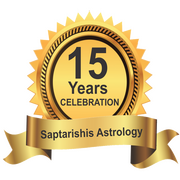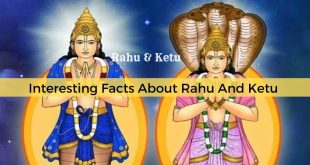Related Articles
A ‘Mission Saptarishis’ Initiative Guru nädI page 7 to 8
3rd NadiAmsha – kälaküöäàçam
Results Of KaalakUta Amsha/nadi:
Note: For Kaalakuta Amsha this means
A) 0°36′ to 0°48’for Moveable Ascendants
B) 29°12′ to 29°24′ for Fixed Ascendants &
C) 15°36′ to 15°48′ for Dual Sign Ascendants
ahyaàçe uttarebhäge çukre kendra trikoëage ||
çänto gaura samäìgaçca sarvavidyä viçäradaù |
dhärmiko dhanikaù kämé çivabhaktaù sadäçuciù ||
One born in the second half of AhIamsha (serpent meaning the kalkuta amsha or nadi) is a Quiet (or peaceloving) person who is of fair complexion with a proportionate body. He is expert in all fields of learning, religious, wealthy, lustful (or virile), pious and a devotee of Lord Shiva.
Chandrashekhar’s Comment: Kālkoota is a poison that was churned form the seas by the Devas and Danavas. The reference to Ahiamsha seems to indicate that the reference is to Kālkoota amsha as Ahi means a serpent or serpent of skies, and serpents being poisonous this could be refering to Kālkoota amsha or nadi. The manuscript copier also seems to think this way as he has written Kālkoota in red letters before this shloka.
païcäsya sodaräññaòdäsa patné mätåjäù pare ||
añöädaçeväàsatyänicatastro dayitä småtäù ||
He has five brothers (or siblings), sixth is born out of a servant girl (from his father) and the next is born (again) of his mother. In his 18th year he marries one whom he loves much.
kulajätisrajetatra premapäträthavä parä |
saptame çubha sandåñöe tistra eva kulastriyaù ||
(The wife is) either born in his own clan or someone with whom he falls in love. Should the 7th bhava be in aspect of a benefic, the wife is from own clan (or class).
saptame mriyate mätä saptaviàçepiturmåtiù |
añöäviàçe sutotpattiù dväviàçe stré parigrahaù ||
His mother dies at the age of 7 and father dies in his 27th year of age. He marries when 22 years old and gets a son (or progeny) when 28 years old.
añöädaçäbde nirgamya sapürvändiçameñyati |
tatraivavasaveçyännya kurvantaçca gatägatim ||
He goes to the eastern direction when 18 years of age and does not travel from there (stays there) .
trayoviçäntparaà bhägyaà våddhirasya dinedine|
añöäviàçe prabhornäçaù vyasanaà mahadeñyati ||
23 years onwards his fortune grows day by day. In his 28th year of age his employer dies due to some
great addiction.
triàçatasya paraà maitré prabhuëäsya bhaviñyati |
vähanädidhanaà bhüré labhate ca na saàçayaù ||
He befriends his employer or King at the age of 30 years and will get great amount of wealth, vehicles,
without any doubt.
devälaya taöäkädi puëyakarma kariñyati |
çatravaçcähya bhüyäàso cariñyanti tatastathä ||
He does many pious works like building of temples, lakes etc. Even his enemies join him in this (good
work).
ekonacatväriàçäbde tenäsya mriyate priyä |
catväriàçänta deväsya tenäya kanikaçca saù ||
His wife dies at the age of 39. At the end of 40th year his younger brother-in-law also dies.
Chandrashekhar’s Comment:
There appears to be some coruption of words in the last line of this shloka. I have tried to interpret by common sense. However, it could also mean that his second wife 1 also dies at 40th year of age.
ekacatväriàçakebde mahäpätaka kådbhavet |
tétaù pratidinaà kñéëaù kurvannåpati bhümiñu ||
At the age of 41 he comits some great sin and as a result his landholdings get reduced due to the order of the King (fines are imposed by the king).
våddhimekonapaïcäçatparameça prapadyate |
ñaööäàçe mahäraëye dhananäço bhaviñyati ||
From the 49 years of age he (his finances) grow again. When he is 56 years of age he looses wealth in a great forest (either as he is robbed or his investment there comes a cropper perhaps the later as the earlier shlokas indicate his wealth in form of lands).
Chandrashekhar’s Comment:
I think the word Sattamshe is a corruption and it should be SatapaMcaashe and have translated as such.
bhaviñyatyañöhapaïcäçe maitryaà tasya mahäbhujau |
sapatnémätåtanayaù käëaroga bhaviñyati ||
After his 58 years of age he befriends two great warriors (literally one with great arms) and one eye of the son of his stepmother (step brother) will be afflicted (he will loose eyesight of one eye or an eyeitself) .
mågeca tasmiñañöyabde duùkhaveña gamiñyati |
puträçcadhanasampannässamåddhä nåpavallabhä||
He will have sorrow on account of a deer (or a wild animal) at the age of 60. He will have sons, wealth and prosperity and shall be liked by the King.
nityaà paricariñyanti prétipurvaà dhanädibhiù |
çarädyabdeñu puëyeñu meharogeëa prapéòitaù ||
He serves (the king) with devotion and is endowed with wealth, lands etc. In his 65th year, he shall be troubled by Meha disease (diabetes or urinary disease).
Chandrashekhar’s Comment: There appears to be some corruption in the second line of the above shloka. There is no reason one should be troubled by urinary disease due to doing some good deeds (Punyeshu), that the said line seems to imply and sharaadya would mean 15 years if adi is taken to be beginning and shara as 5. In the background of all that is given earlier, it does not seem to be the correct age. So I have taken the liberty of treating the word adi as the age of 60 mentioned in earlier shloka. I am sure that if I am wrong the learned will correct me.
sampadaàçam |
Sampada amsha
paralokaà prayäteña dåòha vérghaöikädvayam |
sampadä guëabähulyä daàçaà niçcitya yatnataù ||
He proceeds to the higher world ( after death) due to the wealth of his good deeds, which act as an armour (against any misdeeds that he might have done).
Chandrashekhar’s Comment: There is an annotation in red, prior to this shloka indicating that this could relate to Sampada amsha. However the Guru nadi does not give Sampada as the name of any amsha. Addditionally what happens to the jataka after he is troubled by Meha disease is not mentioned in earlier shloka and this shloka might be explaining what happens to him after he, perhaps, dies after contracting the urinary disease at age of sixty five. I must mention here that at some places the amshas indicated by the transcriber of the original text do not match the names given in the Guru nadi itself and I have then taken the liberty to indicate which might be their correct name after looking at the meaning of the word. If I have misinterpreted this, the fault squarely lies at my doorsteps and not that of the original Author of the nādi, Achyuta, nor the transcriber. I think the following refers to the next nādi (to kalkoota) that is Shankari nadi.
4th NadiAmsha – Shankaryamsham
Results Of ShankarI Amsha/nadi:
Note: For Shankar Amsha this means
A) 0°48′ to 1° 00′ for Moveable Ascendants
B) 29°00′ to 29°12′ for Fixed Ascendants &
C) 15°48′ to 16°00′ for Dual Sign Ascendants
vilikhejjätakaà paçcännäsau mithyävacobhavet |
gurau tadäcedgauräìgassamagätraù pragalbhavän ||
The jataka of the next nadi (ShankarI) is of fair complexion and has a large and proportionate body and is illustrious. This writing (prediction) shall never be wrong.
dhärmiko vedaviddhémäna dvibhäryonnapradassadä |
priyaàvado mätåbhaktyä pituratyanta vallabhaù ||
He has a pleasant speech, is devoted to his mother and a great favourite of his father. He is religious, knower of Vedas, intelligent is always happy and has two wives.
daçäsya sodaräù kanyäñaöpumäàsaù prakértitäù |
rudräbde hi vivähassyädekaviàçe piturmåtiù ||
He has 10 siblings and 6 daughters and famous amongst menfolk. He marries at the age of 11 years and his father dies when he is 21 years of age.
dvipaïcäçe måtämätä tataù kiïciddaridrataù |
dhanaväntyätrayatriàçädarvägavi parigrahä ||
He becomes wealthy at 33 or/and accepts a cow in donation. His mother dies when he is 52 years old and at that time he may suffer losses.
ekaviàçe räjamaitré çrémän garbhagatopi san |
deçänbahuvidhängatvä bhüpälebhyo dhanaà bahul |
When he is 20 years of age a king befriends him, as do wealthy people, travels to many countries and receives great wealth from kings.
labhatenähyatidukhaù nåpätkaçcana bhütale |
dvipaïcäçe dvijadveño dhanaà bhüré prapadyate ||
He receives much unhappiness from some king in this world due to jealousy of Brahmins (may be adviser or Guru of the king) and at 52 years of age gets fined much.
añöapaïcäçadabdesyädapamåtyubhayaà bhavet |
ekonañañöhi ñañöhepi sarvasvaà näçameñyati ||
There is a possibility that he may meet with untimely death at 58 years of age. (If he survives the untimely death) he loses everything at 59 or 60 years of his age.
Learn Astrology: Join Our Upcoming Astrology Classes — Click Here
Learn Astrology: Join Our Recorded Astrology Classes — Click Here
 Saptarishis Astrology Magazine Into Creating Astrologers
Saptarishis Astrology Magazine Into Creating Astrologers






